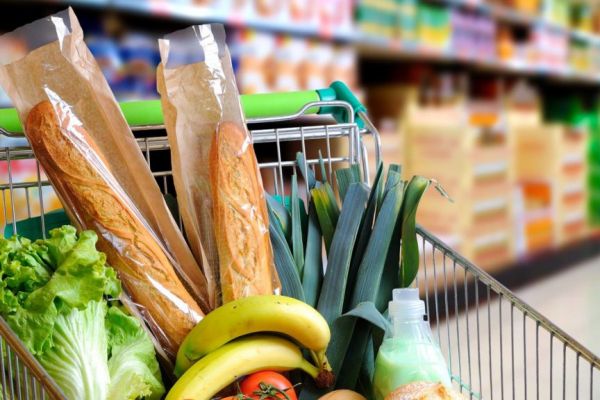NOffLA has called on the government to support the responsible sale of and consumption of alcohol. NOffLA chairperson, Evelyn Jones, criticised the Government’s inactivity in bringing about substantive change to alcohol regulation at the off-licence representative's AGM last Thursday at the Red Cow Moran Hotel. Jones said: "The Government have shown no real urgency in legislating for alcohol consumption and retail. Earlier this month, we learned that the Public Health (Alcohol) Bill will not be published until next year." Jones said that NOffLA is "still in the dark" as to how the Minister for Health proposes to introduce Minimum Unit Pricing, and has been awaiting a statutory code of practice on the retail of alcohol since March. Jones said that while the industry waits, the sector continues to lose out to many large multiples and mixed-traders who sell alcohol at "dangerous and irresponsible prices and promotions". Jones continued: "By the time these measures come into effect, many of us, sadly, may no longer be in business due to the crippling levels of excise duty we pay on our sole product.” Throughout the AGM, members also voiced their concern over an increasing difficulty in accessing SME credit and its knock-on effect in damaging vital supply chains.
The Irish Farmers Association has called on Agriculture Minister Simon Coveney to take 'immediate steps' in encouraging the EU Commissioner for Agriculture, Dacian Ciolos to take a harder line with Russia over its ban on EU food imports. “Commissioner Ciolos’ ‘wait and see’ approach in response to the Russian ban is simply not good enough," said IFA President Eddie Downey. "Now is the time for taking pre-emptive action, to prevent damage to the market for exports. […] The Commissioner must employ all of the market support tools at his disposal under the new CAP to prevent further price disruption.” The IFA said that Minister Coveney should make "immediate contact" with Commissioner Ciolos in order to deliver "an immediate and effective response to this market upheaval."
The Dublin North West division of trade union Mandate has announced it has scheduled a local launch of the 'Decency for Dunnes Workers' campaign, in Liffey Valley, Clondalkin and Lucan, for 6th October 2014. Yesterday, Mandate said that it had referred a claim on behalf of Dunnes members to the Labour Court, after the retailer refused to attend a Labour Relations Commission conciliation hearing. A spokesperson for Mandate said that the actions of Dunnes management “shows a blatant disregard for the living standards of ordinary, hard-working retail employees”.
Glanbia managing director Siobhan Talbot believes that the group's Dairy Ireland portfolio will return to growth last year, following a lacklustre performance in recent quarters. "We are doing all the right things, launching really good products, such as protein milk in Avonmore and investing in taking the brands off the island of Ireland," she told the Sunday Business Post. "So while the performance was back in the first half, we do still in fact believe, as we said previously this year, that the performance of Dairy Ireland for the full year of 2014 will be up year-on-year." Last week, Glanbia announced that its Dairy Ireland revenue declined 7.7% in H1.
From September 19 – also known as “eDay” – all public sector organisations in Ireland will stop accepting cheques from business users. The move is intended to push Small and Medium Enterprises (SMEs) toward more efficient credit and debit card payments – a change that could save the Irish economy an estimated €1 billion per year. Ireland is one of only a handful of EU Member States that still use cheques as a regular payment method, with SMEs either issuing or receiving around two-thirds of all cheques. However, cheques can take up to a week to clear, whilst electronic payments are processed within 36 hours. What is more, customers increasingly expect to be able to pay by card wherever they go. In preparation for the move, Irish businesses should ensure they are able to make electronic payments to public bodies and set up alternative payment methods for customers.
An Oireachtas report has claimed that credit unions should take a larger role in supporting SMEs (small and medium enterprises). The report by the Jobs Committee also recommends that the Central Bank’s commercial lending regulations on some credit unions should be eased, in order to increase access to finance for SMEs. Furthermore, the report called for independent verification of lending rates to SMEs, in addition to the development of non-bank funding initiatives to end over-reliance on bank loans and overdrafts. The Small Firms Association, a business lobby group, welcomed the suggestions. It said access to finance is one of the most pressing issues for SMEs. "It is critical that the practical recommendations contained in this report are accepted and acted upon immediately," SFA director Patricia Callan told the Irish Independent. "They have the potential to make a real difference to improving SME financing."
Fifteen dairy farms have been shortlisted for the 2014 NDC & Kerrygold Quality Milk Awards. The annual hunt for Ireland’s top dairy farmers includes finalists from seven counties, including Tipperary, Galway and six farms in Co. Cork. Dairy co-operatives throughout the country have nominated their best dairy farmers for the national awards, with top farmers often representing a supplier base of hundreds. Detailed technical data about each farm was scrutinised by the expert national judging panel in order to select the shortlist. The panel will now visit the finalists for an inspection, before they select the overall national winner. The overall top dairy farmer is due to be announced in mid-October and will receive a trophy and €5,000. The judges also have the discretion each year to give national category awards.
Ireland’s IdentiGen has patented new technology that could cut the labour cost of DNA testing for meat products by 60%. The business claims its method has significant advantages over other options in the market. "The new testing approach, for which patents have been filed, has been delivering transformational improvements in DNA sample analysis since it was put into production testing earlier this year," said IdentiGen managing director Ciaran Meghen. "In particular the technology can reduce the labour cost of data scoring by more than 60%. The experience within IdentiGen’s own facilities has been a dramatic reduction in the cost of generating results." IdentiGen has recently hired more staff with a view to commercialising its new technology worldwide.
Heineken’s operating profit for the first half of the year increased by 9.6% to €1.454 billion, above the €1.367 billion expected by survey of analysts. The group attributed this rise to cost efficiencies and volume growth in almost all regions. On the sales side, Heineken saw an increase in market share in Western Europe, with double-digit sales boosts in both Spain and France. The group attributed this to the FIFA World Cup and good weather on the continent. However, at the other extreme, flooding impacted sales in the Central and Eastern Europe region. Furthermore, volume sales underwent a double-digit drop in Russia due to a weak economy and poor consumer confidence. Looking to the future, the brewer - which is also home to Strongbow, Sol and Tiger Beer – expects overall growth to slow down in the next six months.
Bord Bia will recognise the achievements of organic food and drink growers and manufacturers at the National Organic Awards, taking place on 14 October. The Organic Trust is encouraging its members to take part, highlighting the exposure and support that winners will receive. “This kind of expertise, which would often be outside the financial capabilities of many small and artisan food producers, has the potential to improve many aspects of business for organic food producers,” it told the Irish Examiner. Indeed, Pat Lalor of Kilbeggan Organic Foods – who won an award in 2012, said "Winning a National Organic Award from among your peers is a significant recognition in developing the home market but even more significant in developing the export market." Expert judges will consider all entries sent in after the closing date of September 5.
Carlsberg has revealed that it expects its full-year operating profit will be lower than in 2013. This is largely due to the current economic difficulties in Russia – a market responsible for over a third of the brewer’s profits. Despite previous expectations of growth, Carlsberg now expects operating profit is to drop by low- to mid-single digit percentage points. Experts have claimed that the Danish brewer has not been directly hurt by economic sanctions, but by the results of these upon the Russian economy, which is now at risk of recession. Although its Baltika brand remains hugely popular throughout Eastern Europe, Carlsberg’s beer sales in Russia are dropping significantly. Furthermore, there is uncertainty around excise duties and the fall of the rouble against the euro has exacerbated the situation. This has led the brand to look at restructuring its business in the region. In a statement, Carlsberg said, "In order to mitigate the risks as much as possible, several changes have been and will be made in our Eastern European business, including structural changes. These include considerations related to brewery closures”.
© 2014 - Checkout Magazine by Genna Patterson and Nathan Evans.
{loadposition ri26082014}









